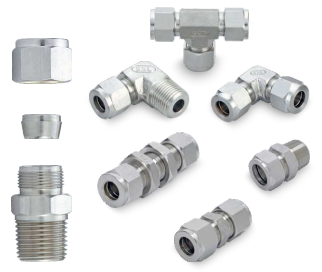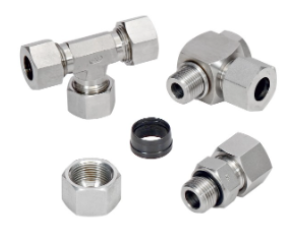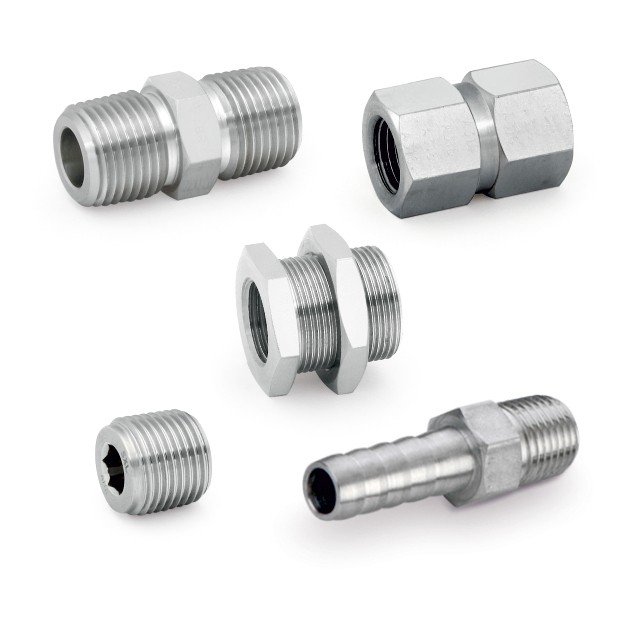Stainless Steel pipe – How To Check The Grade?
October 27, 2021What are the Types and Uses of Coupling Pipe ?
December 4, 2021In the complex world of industrial processes, countless fluids – from vital water to hazardous chemicals – need to be controlled with precision. Enter instrument valves, the silent guardians that ensure smooth flow, safety, and efficiency. But not all valves are created equal. When it comes to durability, versatility, and lasting performance, stainless steel instrument valves stand out as the undisputed champions.
Let’s delve into the reasons why stainless steel reigns supreme in the realm of industrial valves:
1. Built to Last: Durability You Can Trust
Industrial environments can be harsh. Imagine scorching temperatures, high pressures, and constant exposure to corrosive fluids. Regular valves might buckle under such stress, leading to leaks, malfunctions, and even safety hazards.
This is where stainless steel steps in. Its exceptional strength and resistance to wear and tear make it a champion of durability. Stainless steel 304 and 316 are particularly popular choices, offering a long lifespan that translates to significant cost savings down the line.
2. Corrosion? No Way!
Rust and corrosion are the enemies of any valve. They weaken the structure, compromise flow, and can even lead to catastrophic failures. However, stainless steel boasts a secret weapon: chromium. This element forms a protective layer on the surface, effectively shielding the valve from corrosion.
This makes stainless steel instrument valves the ideal choice for applications involving:
- Chemical processing plants: Handling harsh chemicals without a hitch.
- Marine environments: Resisting the corrosive effects of saltwater.
- Water treatment facilities: Ensuring clean and uncontaminated water flow.
3. A Multitude of Uses: Unmatched Versatility
Stainless steel instrument valves are not one-trick ponies. They excel in a wide range of industrial applications. From commercial construction and energy production to oil refineries and even shipbuilding, these valves are everywhere.
They can handle various fluids, including:
- Water for fire sprinkler systems and tubing.
- Flammable gasses like natural gas.
- Oils and lubricants are crucial for machinery operation.
- Steam used in power generation and heating systems.
4. Easy Maintenance: Keeping Things Flowing Smoothly
Regular maintenance is vital for optimal performance. The good news? Stainless steel instrument valves make life easier. Their smooth, non-corrosive surface minimizes the risk of rust build-up, making cleaning and inspection a breeze. This translates to less downtime and ensures your systems continue to operate efficiently.
5. No Leaks, No Worries: Ensuring Safety and Security
In industrial settings, leaks can be disastrous. They can lead to environmental damage, product contamination, and even safety hazards. Luckily, stainless steel valves are built to keep things tight. Their robust design and precise engineering prevent leaks, even under high pressures and harsh conditions.
This makes them ideal for handling hazardous fluids or applications where leaks are absolutely unacceptable.
Partnering with the Best: Seal Excel – Your Trusted Source
At Seal Excel, we understand the critical role of instrument valves in industrial processes. That’s why we offer a comprehensive selection of high-quality stainless steel valves, ensuring you find the perfect fit for your specific needs.
Our valves are renowned for their:
- Corrosion resistance: They can withstand the harshest environments.
- Leak-proof performance: Safety and security are our top priorities.
- Durability: Built to last, minimizing replacement costs.
So, the next time you encounter a smooth-running industrial operation, remember the silent heroes behind the scenes – stainless steel instrument valves. They are the guardians of flow, ensuring safety, efficiency, and long-lasting performance. Choose Seal Excel as your partner and experience the confidence that comes with using the best in the business.




